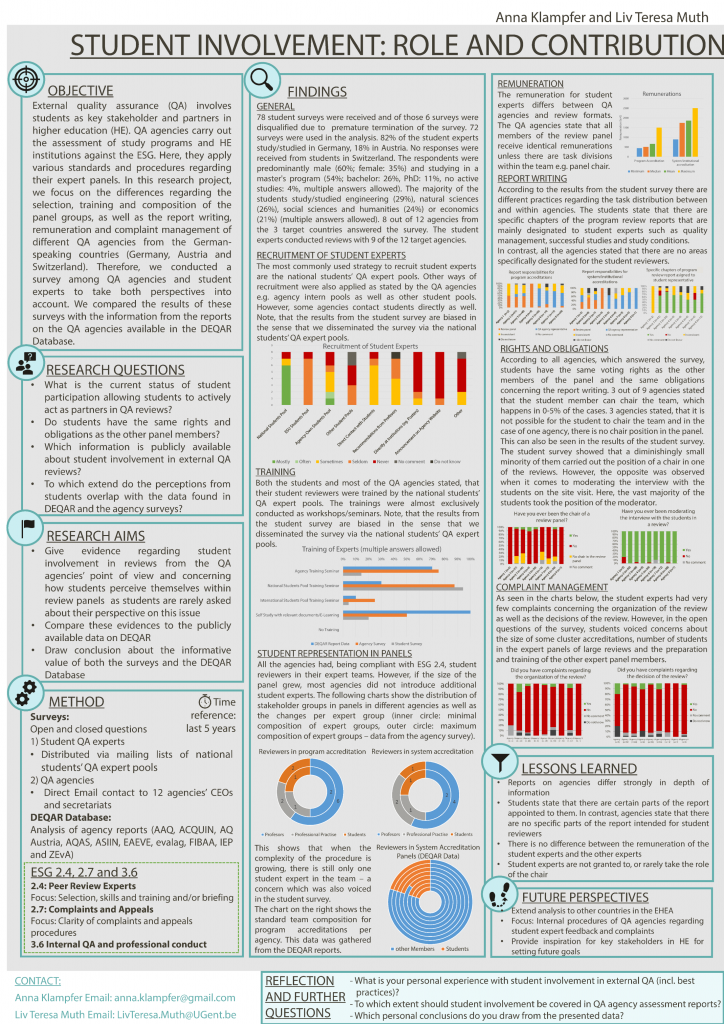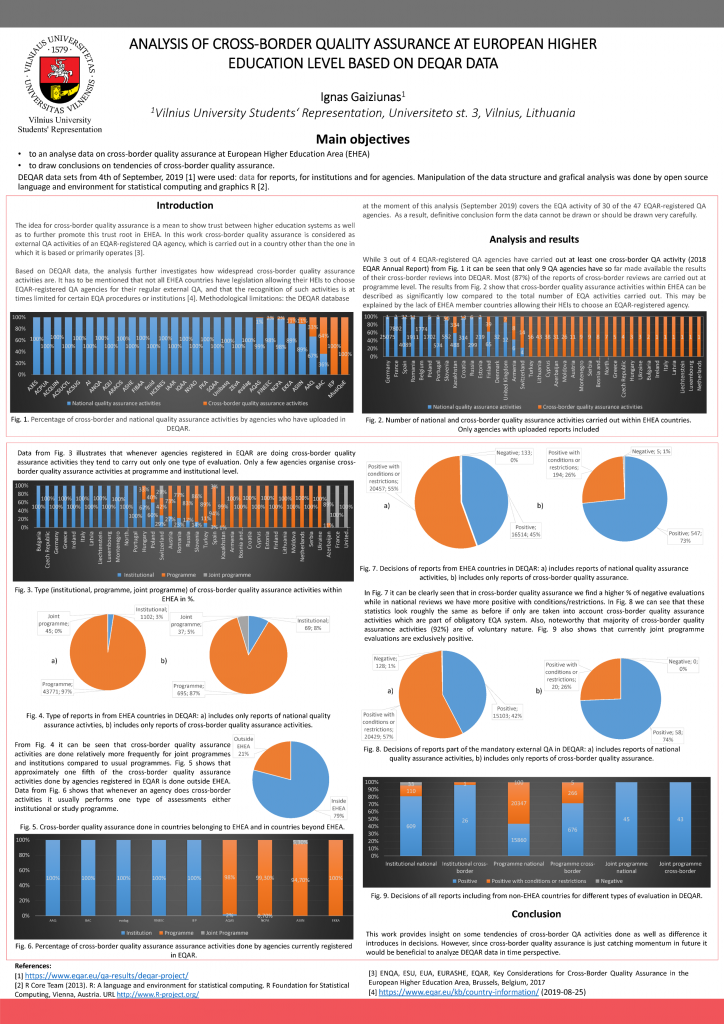
DEQAR Conference / EQAR Members’ Dialogue
The DEQAR Conference / EQAR Members’ Dialogue was hosted by the Universidad Carlos III de Madrid (UC3M), thanks to the Spanish University Association (Crue Universidades Españolas). The DEQAR conference aimed to:
- Enable and support peer learning and exchange of experience among policymakers, stakeholders and researchers.
- Present and discuss with participants the pilot studies prepared by UGent (CHEGG).
- Explore good practices and ways to further promote the use of the database.
- Elicit suggestions on how to develop the database further.
The European Students’ Union had the chance to participate in the conference. Our representatives present at the conference were members and chairs in panel discussions. We were presenting the student’s point of view on how DEQAR can foster students’ mobility and automatic recognition. Besides that, members of ESU’s Quality Assurance experts pool were showing their findings based on DEQAR database to the participants during the world cafe session. Research on Quality Assurance is one of the examples and possibilities on how the database can be used by students, student experts and researchers.
Anna Klampfer and Liv Teresa Muth, members of both their national and the ESU’s QA Students’ Expert Pool, focussed their project on the involvement and role of students in QA reviews. In the following visual, they took the perspective both of students and QA agencies via surveys and QA agency reports from DEQAR into account.

The second poster was prepared by Ignas Gaiziunas from Vilnius University Students’ Representation. The research was based on accessible data through DEQAR at the beginning of September 2019.
The key findings of the research are presented below:
- Relatively more institutional and joint programme quality assurance activities are done as cross-border QA in comparison to national QA.
- In cross-border quality assurance, there is a higher percentage of positive evaluations than in national reviews, 73% and 45% respectively.
- Whenever agencies do cross-border QA, they tend to do one type of QA activities (institutional or programme reviews).
- Joint programmes are evaluated exclusively positively in cross-border QA as well as national QA.

